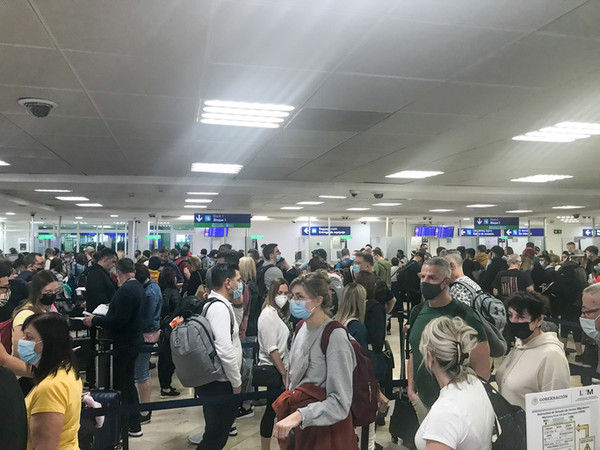Korea recently scrapped requiring a Covid-19 test for inbound travelers before entry to the nation but kept the mandatory PCR test within 24 hours after arrival in Korea.
However, the government is poorly monitoring mandatory PCR tests among entrants, a lawmaker said Thursday.
Rep. In Jae-keun of the Democratic Party said he analyzed data from the Korea Disease Control and Prevention Agency (KDCA).
Starting on Sept. 3, the quarantine authorities lifted the mandatory Covid-19 testing before arrival for inbound travelers.
An obligatory PCR test within 24 hours after arrival is the only way to prevent the viral spread.
On July 14, the KDCA introduced the “Q-Code” system to allow inbound travelers to report the PCR testing results voluntarily.
However, for a month after the introduction of the system, the result registration rate was only 60.7 percent.
Of the 94,289 people who entered Korea from July 14 to Aug. 16, only 578,936 registered their PCR test results in the Q-Code system. About 35 percent of Korean entrants and 51.4 percent of foreign entrants did not report the test results after arrival in Korea.
To make matters worse, Korea has no tool to check whether an entrant who did not report a PCR test result had taken a PCR test or not.
To identify them, government officials have to track the entry list one by one, but the task will be almost impossible, local governments said.

On Sept. 1, the Central Disease Control Headquarters held a meeting with disease response centers and public health centers to discuss how to get inbound travelers tested for Covid-19 after arrival.
During the meeting, people pointed out that most contact numbers of foreigners staying in Korea for a short term were inaccurate and some foreigners were trying to avoid testing due to fears of isolation.
“After the outbreak of Covid-19, about 15 million people entered Korea, and over 53,000 people tested positive for Covid-19,” In said. “There could be Covid-19 cases among those who arrived in Korea, did not comply with the testing guidelines, and freely move around.”
In said Korea’s negligent operation of PCR testing immediately after arrival was a “great problem.”
“If a new foreign virus outbreak occurs overseas, the situation could grow out of control. The government should quickly come up with countermeasures,” he added.

